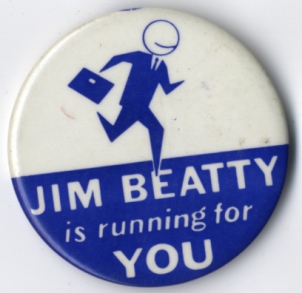“Reporters have to battle a growing attitude on the part of state and local officers that public business is none of the public’s business. Last week North Carolina newsmen lost a round. When a vital Appropriations subcommittee, disregarding state law, denied them access to its budget hearings, capital reporters staged a sitdown in the hearing room.
“To dodge the reporters, the stymied committee rented a hotel room, met secretly there. Reporters heard about it, crowded outside the locked door. Committee Co-Chairman J. William Copeland stepped out to offer a compromise: He would let the newsmen in if they agreed not to report anything the committee wanted off-the-record. The reporters flatly rejected the proposal….
“Next day, by voice vote, the North Carolina legislature rammed through a law legalizing closed appropriations-committee hearings. Argued State Representative Oscar G. Barker, onetime Durham Herald staffer: ‘The law will set democracy back not less than 100 years in North Carolina.’ ”
— From Time magazine, April 6, 1953

